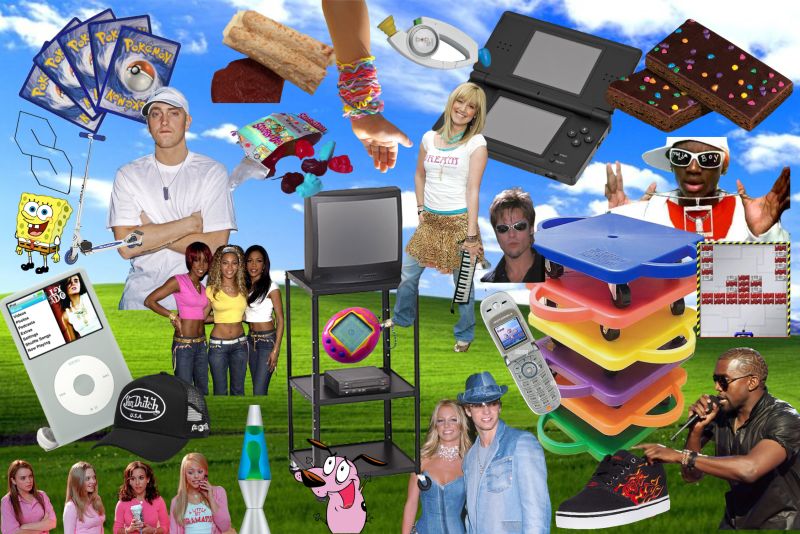With the digital age advent, the landscape of pop culture has undergone a remarkable evolution, transforming how we consume and participate in cultural phenomena. Read to find out more

Pop culture is always a reflection of society, showcasing the interests, values, and trends that capture the imagination of the masses. However, with the digital age advent, the landscape of pop culture has undergone a remarkable evolution, transforming how we consume and participate in cultural phenomena.
From social media to streaming platforms, the digital age has revolutionized pop culture pop culture's dissemination, creation, and impact in unprecedented ways. One of the most significant transformations brought about by the digital age is the democratization of content creation and consumption.
With the rise of platforms like TikTok, YouTube, and Instagram, anyone with an internet connection and a smartphone can create and share their content, bypassing traditional gatekeepers and reaching a global audience.
This led to the emergence of internet celebrities and influencers who have amassed large followings and wield significant influence over trends and consumer behavior. As a result, the power to shape popular culture is no longer limited to a select few in the entertainment industry.
Read Also:The Most Memorable Red Carpet Looks Of All Time
Social media platforms have evolved into a haven for issues and trends that become viral and spread like wildfire, grabbing the attention of millions worldwide. For instance, memes have surpassed geographical and cultural boundaries to become their language.
Memes can convey complex ideas and emotions concisely and humorously, creating a shared cultural experience that unites people across diverse backgrounds. As a result, the internet is now a global melting pot of ideas and creativity, where memes, viral videos, and online communities shape the cultural zeitgeist.
Furthermore, the digital age has disrupted traditional modes of consuming entertainment. Streaming platforms such as Netflix, Amazon Prime, and Spotify have revolutionized how we access and enjoy music, movies, and TV shows.
The convenience of on-demand streaming has led to binge-watching and the phenomenon of "Netflix and chill," where entire seasons of shows are devoured in a single sitting.
This shift has also fueled the rise of streaming-exclusive content, with platforms producing original series and movies that rival traditional media in popularity and critical acclaim.
The digital age also gave rise to fandom culture on a whole new scale. Online communities of fans gather on platforms like Reddit, Twitter, and Tumblr to discuss and dissect their favorite movies, TV shows, books, and celebrities.

Read Also: The Most Anticipated Video Games Of 2023
These communities allow passionate fans to connect, share theories, create fan art, and engage in ongoing conversations about their shared interests.
As a result, fandoms have become powerful forces that can influence the failure or success of a project, as demonstrated by the vocal and dedicated fanbases behind franchises like Marvel, Star Wars, and Harry Potter.
Moreover, the digital age has opened up new avenues for diverse and inclusive voices to be heard in pop culture. Marginalized communities, whose stories were often overlooked or misrepresented in mainstream media, can now tell their narratives and find an audience online.
Web series, podcasts, and independent music artists have gained traction, offering fresh perspectives and challenging the status quo.
Social media campaigns and online activism have also significantly demanded more diverse and inclusive representation in popular culture, leading to greater visibility and opportunities for underrepresented groups.
However, the digital age has also brought its fair share of challenges to pop culture. The ubiquity of social media and the constant demand for new content has led to shorter attention spans and a culture of instant gratification.
Trends come and go rapidly, and maintaining relevance in the digital landscape can be daunting for artists and content creators. The ease of access and sharing has also led to copyright infringement and piracy issues, forcing industries to adapt their business models to combat these challenges.
Conclusively, it is safe to claim that the democratization of content creation has been a significant factor in the development of pop culture in the digital era, the emergence of viral trends, the disruption of traditional media consumption, the influence of fandom groups, and the amplifying of various perspectives.
The digital age not only transformed how we engage with popular culture. Still, it has also reshaped the industry's influence and power dynamics. As technology advances, it will be fascinating to see how pop culture further evolves and adapts to the ever-changing digital landscape.

